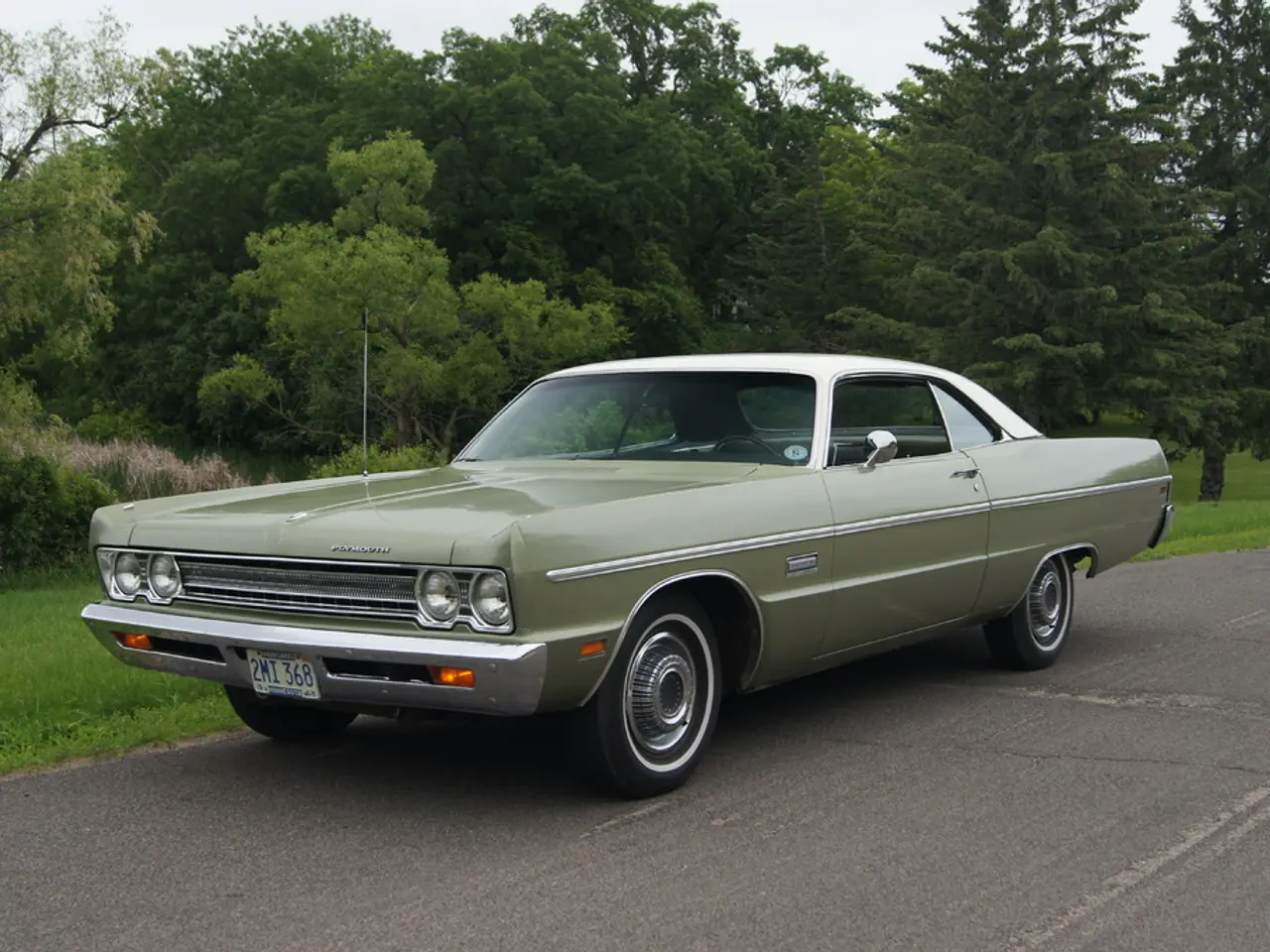Sustainable Fuel Emphasis Persists for Goodwood's Revival Race Weekend Renaissance
The Goodwood Revival, a celebrated historic motor racing event taking place this weekend (September 12-14) at the Goodwood Motor Circuit in Chichester, England, is making strides towards sustainability. Since 2024, the event has been using sustainable fuel, a move that has been received positively by competitors.
Matt Hearn, Goodwood's head of event content, expressed that the shift to sustainable fuel is essential for the event's cultural sustainability. Historic vehicles, built between 1948 and 1966, have successfully adapted to the change, consuming sustainable fuel in the same way as modern vehicles, with no drop in performance.
To ensure a smooth transition, cars need to have their fuel systems fully flushed, and two fuels cannot be mixed in the same tank. Competitors at the Revival can either use Goodwood's own fuel provided on-site or bring their own, which is tested to ensure it meets the 70% sustainable rule.
The sustainable fuel used at Goodwood is created using captured carbon or other waste materials. This change helps lower the carbon footprint of the event without altering the racing itself. In fact, the 70% rule could be increased, but Goodwood aims to make as few changes as possible to give competitors time to adapt.
The use of sustainable fuel is not exclusive to Goodwood. Formula One will use 100% sustainable fuel from the 2026 season, while F2 and F3 divisions have already switched to the fuel in 2025. Big industry players like Shell and TotalEnergies, as well as smaller startups such as P1 Fuels (US) and Zero Petroleum (UK), are investing in sustainable fuel development.
Notable companies involved in sustainable fuel development for motorsport include British company Coryton (supplier of synthetic fuel to DTM), Porsche Switzerland collaborating with HIF Global on eFuels, MAHLE with ethanol-compatible engine components, and Mammoet using HVO100 renewable fuel for heavy transport in motorsport contexts.
Porsche is also developing a sustainable so-called eFuel for its motorsport series and customer experience centres. Zero Petroleum, headed by former F1 engineer Paddy Lowe, is working on producing synthetic gasoline, diesel, and jet fuel using captured carbon dioxide and renewable hydrogen.
It's worth noting that while sustainable fuel helps reduce emissions, carbon is still emitted from the tailpipe of a car running on the fuel. However, no more carbon is being created or added to the environment, making it a significant step towards a greener future for motorsport.
The successful implementation of sustainable fuel at the Goodwood Revival underscores the potential for this technology to become a significant business, especially in countries where building electric car infrastructure is challenging. As the world continues to grapple with climate change, events like the Goodwood Revival demonstrate that sustainability can be achieved without compromising the thrill and excitement of motorsport.








